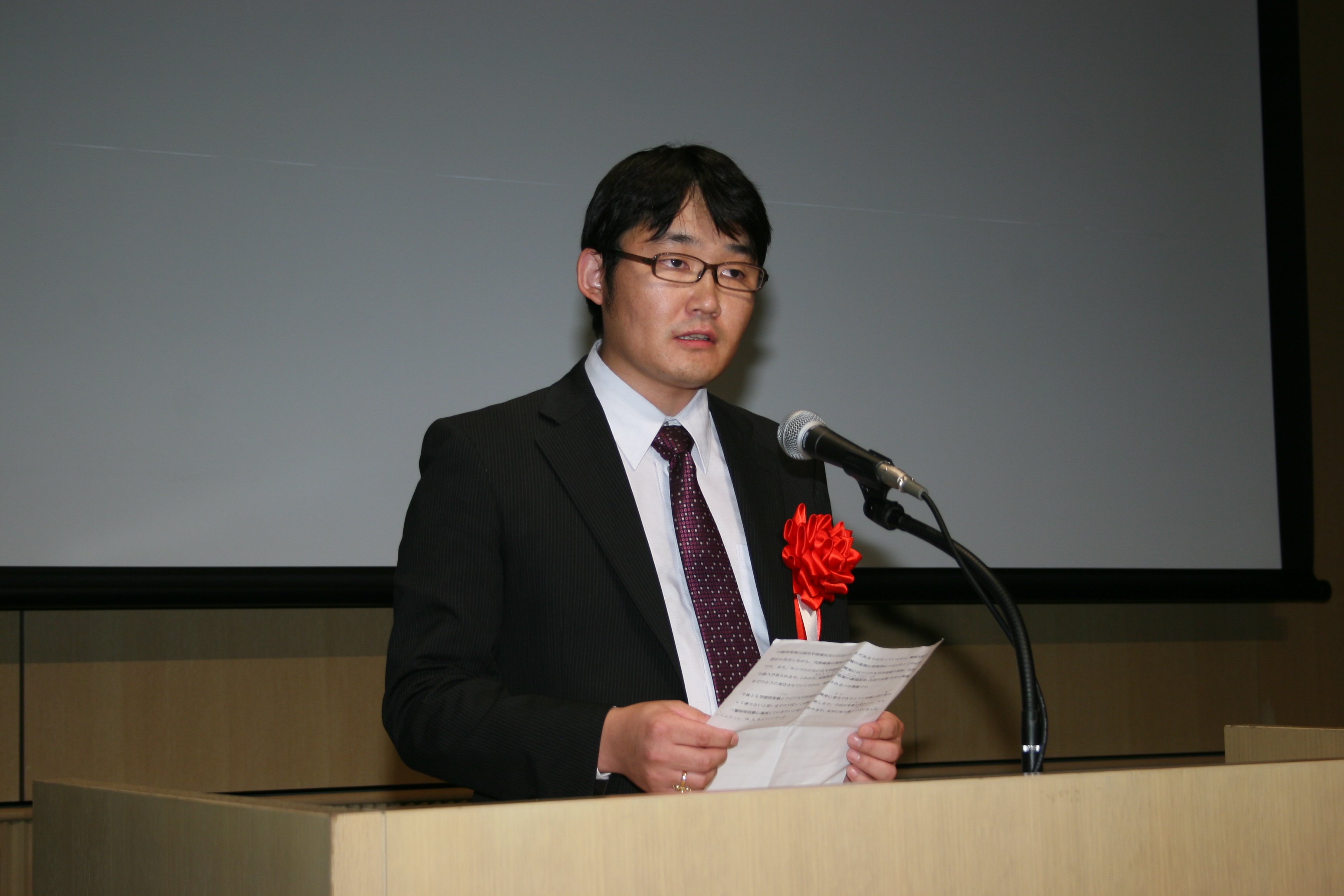 The 12th Asia Pacific Research Prize (Iue Prize) “Commendation” winner:
The 12th Asia Pacific Research Prize (Iue Prize) “Commendation” winner:
Dr. Dalaibuyan Byambajav
Title of Dissertation :
“Post-Socialist Transition and Civil Society in Mongolia”

- Dr. Dalaibuyan Byambajav
-
- Career -
Dalaibuyan Byambajav received his PhD degree in sociology from Hokkaido Universityin 2012. Before commencing his studies in Japan in 2006, he worked as a lecturer of Political Science at the Mongolian State University of Education.Byambajav joined the Centre for Social Responsibility in Mining of the Sustainable Minerals Institute in the University of Queensland as a Postdoctoral Research Fellow in April 2013. His current research examines issues relating to the socio-economic impact of mining and agreement-making between developers and impact communities in the South Gobi.
- Summary -
- Management History of the Chinese Eastern Railway:
Russia and Manchuria, 1896–1935 -
The notion of civil society has regained much attention in social sciences over the past two decades. Especially the relationship between democracy and civil society in post-socialist transitional countries where the party-state had sought to destroy any sources of independent action and to repress any groupings outside the party-state institutions for decades has had significant practical and theoretical implications. Unlike previous research that investigated the role of civil society in democratization, this thesis examined Mongolia’s civil society since 1990 as an evolving process under a dynamic socio-political environment, which enables and delimits opportunities for different socio-political articulations to emerge and develop. To understand the country’s developing pattern of civil society, which followed the advent of democracy in 1990 and the subsequent dynamics that are intertwined by socialist legacies, transnational influences and socio-economic transformations, this research borrowed and linked concepts from social movement theories.
In the changing international environment, Mongolia’s democratic movement led the country to a peaceful political transition in 1990. The first and second decades of the post-socialist transition present two different patterns of civil society. While the first decade is characterized by demobilization and NGO-zation, much of the second decade is characterized by the spread of social mobilization and the diversification of social activism. This difference is largely determined by the dynamics within the Mongolian political system, specifically, the evolution of opposition parties in the political environment in which the former Communist party, the MPRP, dominated most of the time. In this period, civil society was largely occupied by emerging NGOs and the inherited ‘mass organizations’, both of which avoided politically sensitive issues to maintain their good relations with donor organizations and the government, respectively.
The intensification of political and social mobilization in the mid-2000s was preconditioned by political convulsions caused by rivalries among major political parties. The increasing public discontent over ineffective political institutions and widespread allegations concerning corruption in state institutions were manifested by the emergence of various ‘citizens’ movements’. The wave of protests mobilized by these movements in both Ulaanbaatar and rural areas changed the contours of prevalent forms and activities within Mongolian civil society. Nomadic pastoralism, a rather distinct feature of Mongolia, coupled with urbanization and market capitalism, produced some unique forms of social activism that might be difficult to find in other settings. The ‘demanding’ aspect of civil society led the Mongolian government to take an apparently cooperative approach towards civil society organizations in recent years compared with its earlier position of indifference towards civil society.
While shedding lights on the longitudinal and macro societal dynamics of civil society, this thesis explored in-depth the emergence and the course of local environmental movements opposing environmentally damaging mining operations in Mongolia. Based on in-depth interviews with local environmental organization leaders, fieldwork in a mining affected area, and participant observation carried out during several trips to Mongolia between 2008 and 2011, it demonstrated how the discrepancy between the legislation and local practices and the gap between local concerns and transnational norms and ideas such as responsible mining influenced the trajectory of local movements.






